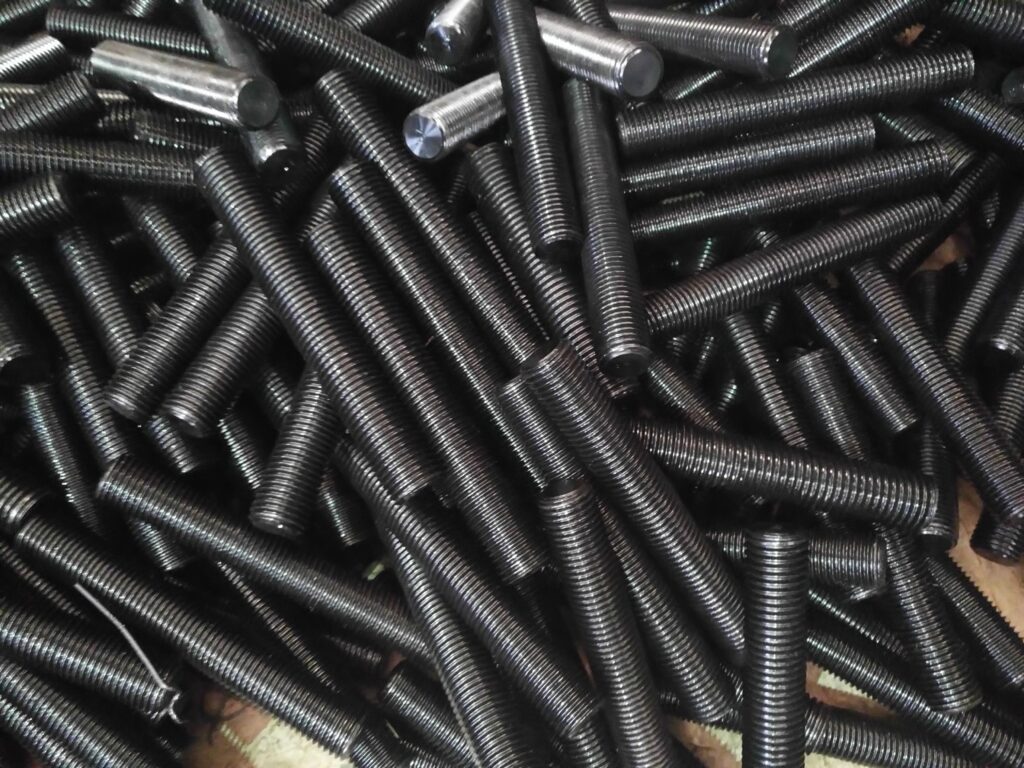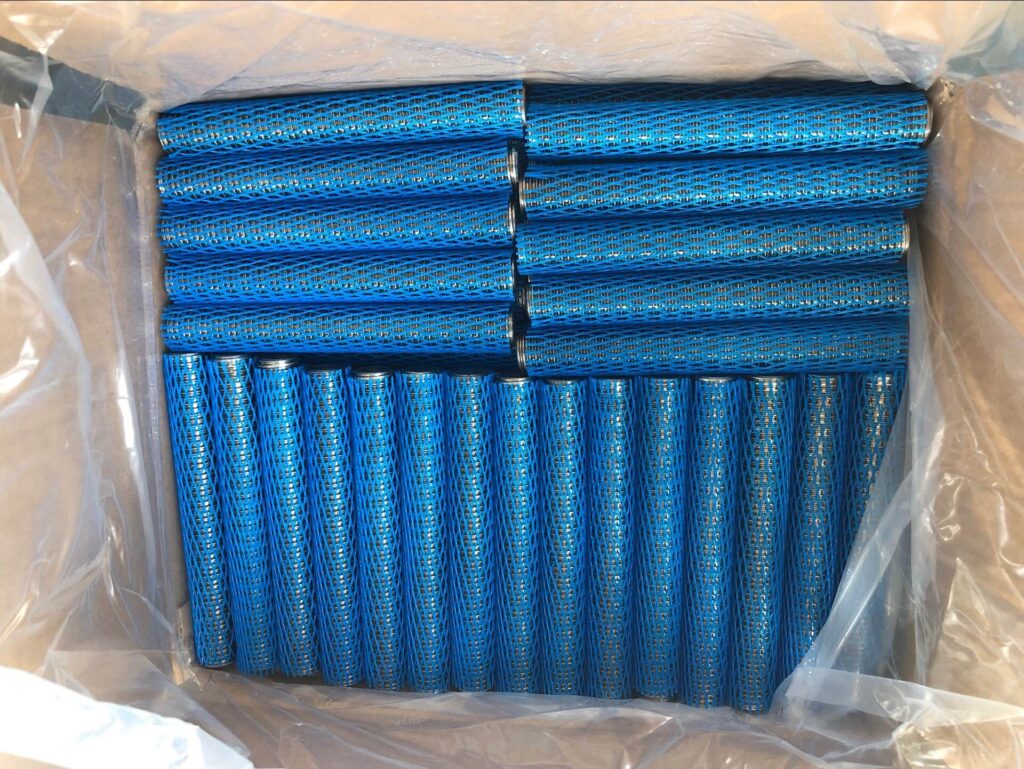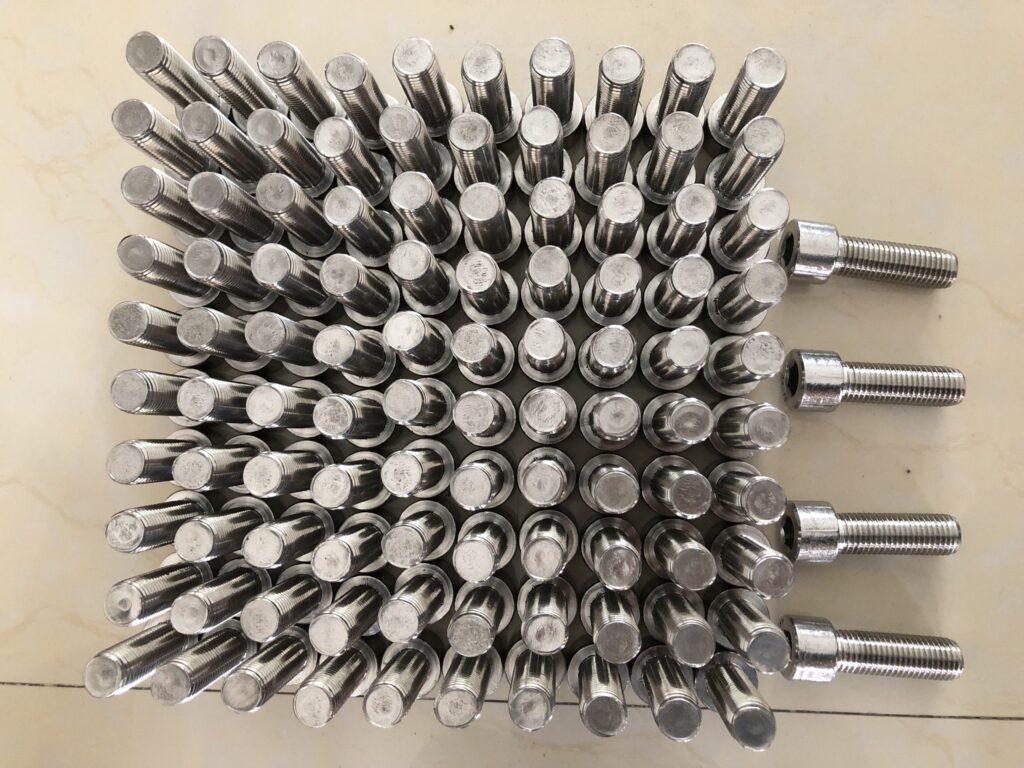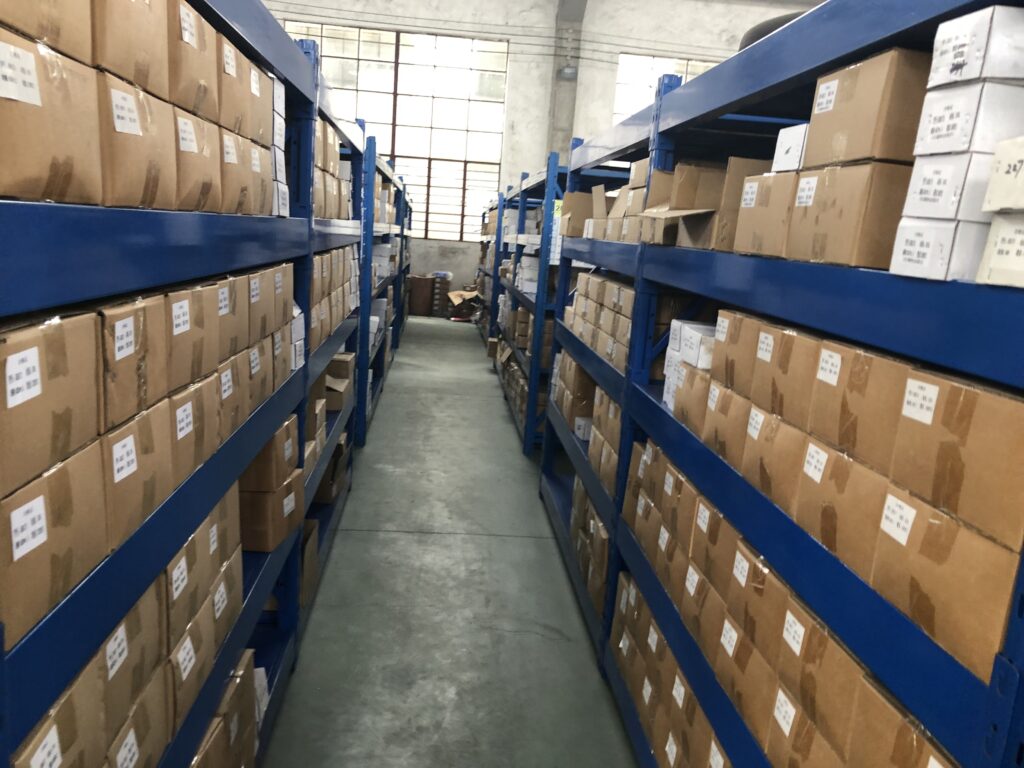astm a320 l7 bolts
astm a320 l7 bolts production process

The production of ASTM A320 L7 bolts involves multiple steps to ensure they meet the required mechanical and chemical properties for low-temperature bolting applications. Here is a generalized production process for these bolts:
- Material Selection: Begin with choosing the right grade of chromium-molybdenum alloy steel bar stock that meets the A320 L7 specifications.
- Cutting: The bar stock is cut to the desired length, based on the intended size of the bolts.
- Heating: The cut pieces are heated in a furnace to achieve the desired temperature for forging.
- Forging: Using a press or hammer, the heated pieces are forged into the rough shape of the bolt. This process helps in aligning the grain structure of the steel, improving its mechanical properties.
- Thread Rolling: Once the bolts are forged and cooled, they undergo a thread rolling process. This is done using two flat dies that have the reverse of the thread profile. When the bolt is rolled between these dies, it forms the threads.
- Heat Treatment: To achieve the required mechanical properties, the bolts are subjected to a heat treatment process, which typically includes quenching and tempering. This process ensures the bolts have the necessary toughness and strength for low-temperature applications.
- Inspection: After heat treatment, the bolts undergo various inspections to ensure they meet the specified standards. This includes dimensional checks, visual inspection, hardness testing, and sometimes more advanced tests like ultrasonic or magnetic particle inspection.
- Protective Coating (if required): Depending on the application and customer requirements, the bolts might receive a protective coating, such as zinc plating or hot-dip galvanizing, to provide corrosion resistance.
- Packaging: Once the bolts have passed all inspections and any finishing processes, they are packaged for shipment.
- Documentation: Along with the bolts, manufacturers usually provide a certificate of compliance or a test report that verifies the bolts meet the ASTM A320 L7 standard’s requirements.
This process may vary slightly depending on the manufacturer’s equipment, facilities, and specific customer requirements.
Usage scenarios of astm a320 l7 bolts?
ASTM A320 L7 bolts are specifically designed for low-temperature applications. Their properties make them ideal for situations where good strength and toughness are required at cold temperatures. Here are some common usage scenarios for ASTM A320 L7 bolts:
- Petrochemical Industry: They are frequently used in pressure vessels, valves, flanges, and fittings that operate in low-temperature environments, especially in processes that involve liquefied natural gas (LNG) or other cryogenic materials.
- Oil and Gas Industry: For installations in colder climates or deep-sea drilling platforms where equipment is exposed to low temperatures, L7 bolts provide reliable performance.
- Power Generation: In some power generation facilities, especially those in colder regions, equipment might be subjected to low temperatures, necessitating the use of ASTM A320 L7 bolts.
- Chemical Processing: Certain chemical processes require equipment to operate at or be exposed to low temperatures. L7 bolts ensure the integrity of these installations.
- Structural Applications: In regions where temperatures can drop significantly, structures like bridges or buildings might use ASTM A320 L7 bolts to ensure the integrity of the joints and connections, especially if they’re load-bearing.
- Refrigeration Systems: Large industrial refrigeration systems, especially those used in food processing or cold storage warehouses, may utilize L7 bolts due to their low-temperature performance.
- Pipelines: Pipelines that transport cold liquids, especially in the Arctic regions or other cold environments, might use L7 bolts for flanges, supports, and other connection points.
- Heavy Machinery: Some heavy machinery designed for use in cold climates, such as those used in polar research stations or ice-breaking ships, might incorporate ASTM A320 L7 bolts.
- Aerospace: Certain aerospace applications that require hardware to perform reliably at very low temperatures might employ L7 bolts.
When selecting fasteners for specific applications, it’s crucial to consider the operating environment, the materials being joined, and any potential temperature variations to ensure optimal performance and safety.
astm a320 l7 bolts Read More »









